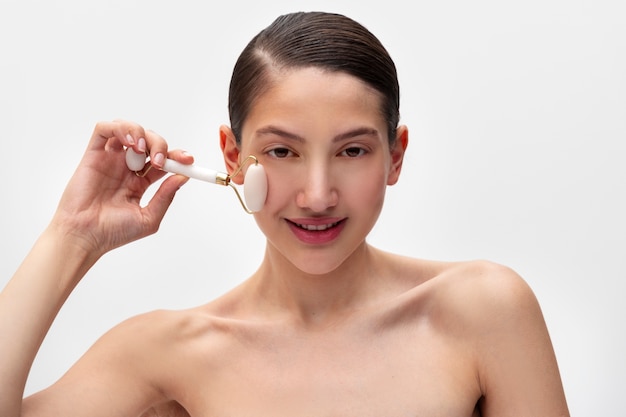
Over the years, both women and men over 50 have turned to aesthetic injectables to maintain a youthful appearance. One of the most popular options is Botox, which is derived from the toxins of Clostridium botulinum. Botox helps prevent wrinkles by relaxing facial muscles.
Even though Botox was approved by the FDA in 2001, some people still question its effectiveness in reducing wrinkles, frown lines, and forehead lines. Here are three ways Botox can benefit your skin:
If you haven’t seen much success with other anti-aging treatments, Botox might offer better results. Some worry that long-term Botox use could be harmful, but it’s actually quite the opposite. Regular Botox treatments can soften your appearance and smooth out deep wrinkles.
The active ingredient in Botox, botulinum toxin, disrupts the communication between nerves and muscles. Normally, nerves send a neurotransmitter called acetylcholine to muscles to create movement. When Botox is injected, it prevents nerve cells from releasing acetylcholine, which stops muscle contractions. With reduced muscle movement, your skin becomes smoother, and wrinkles are less noticeable. Repeated treatments can lead to consistently positive results, leaving you with youthful, glowing skin.
Botox can help you achieve smoother, younger-looking skin by reducing wrinkle formation. Once injected, the effects aren’t reversible but will gradually wear off. Typically, the effects last between three to five months before a new treatment is needed. During this period, the reduced muscle movement slows down wrinkle formation and improves skin texture.
To maximize and maintain the benefits of Botox, it’s important to follow a thorough skincare routine. This includes washing your face with a gentle scrub, avoiding harsh soaps and facial products, staying hydrated, eating a balanced diet, and practicing facial massages.
If you’re dealing with acne and skin breakouts, Botox might be worth considering. While there isn’t extensive research linking Botox to acne treatment, a study by Dr. Anil Shad, a plastic surgeon in Chicago, found that 85% of a small sample of 20 patients saw some improvement in their acne after a single dose of Botox. Botox can help by reducing oil production and minimizing sweating, which are factors that often clog pores and cause acne.
However, Dr. Joshua Zeichner, a dermatological director at Mount Sinai Hospital in New York, advises caution with using Botox for acne treatment due to potential side effects on muscle activity. He recommends combining Botox with other proven dermatological acne treatments for the best results.